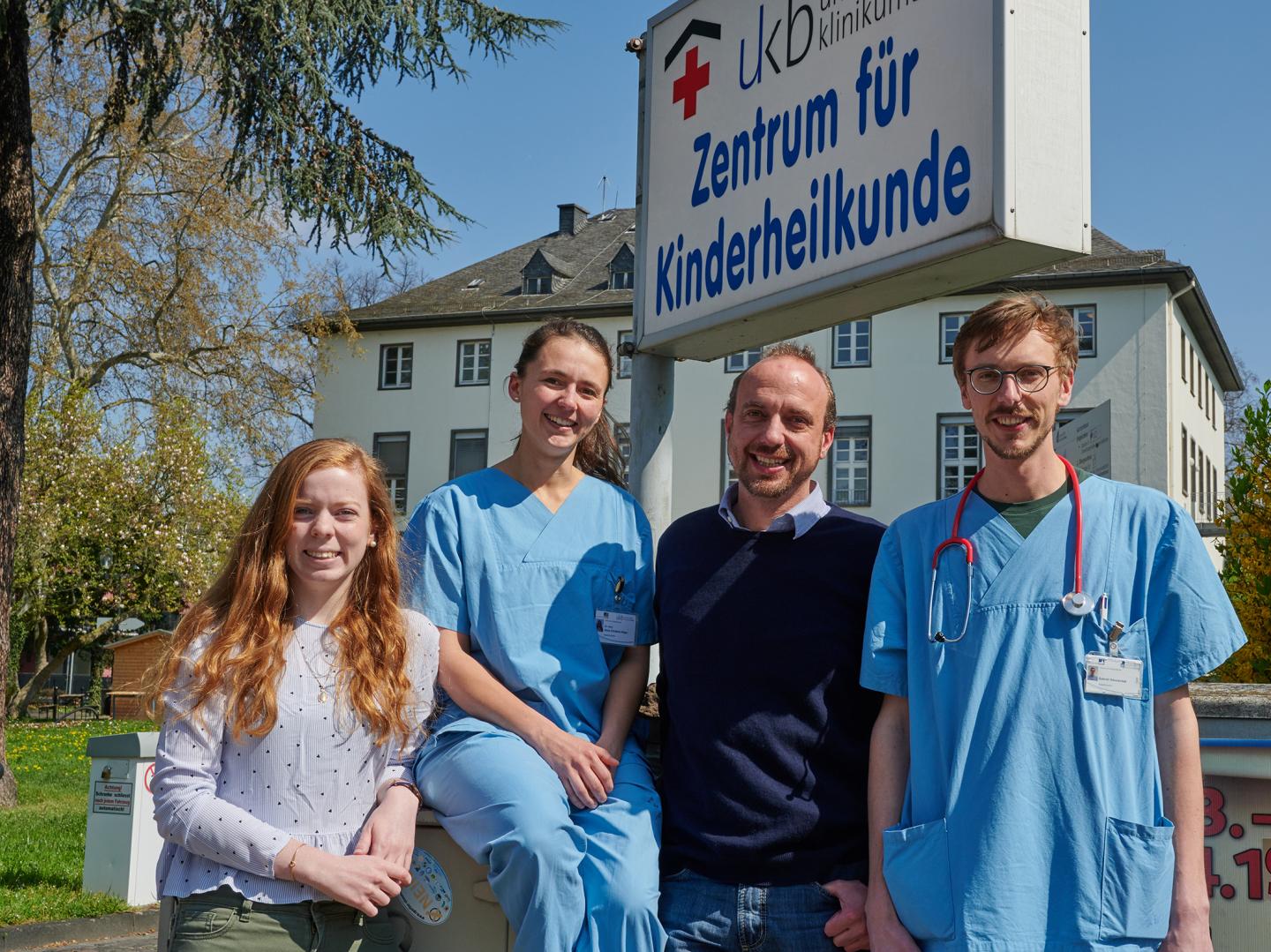University of Bonn study shows BNC2 is involved in LUTO

Credit: © Photo: Volker Lannert/Uni Bonn
Even before birth, an obstructed urethra can cause a variety of issues in the unborn child, ranging from mild urinary problems to kidney failure. This highly variable disease is called LUTO (lower urinary tract obstruction). Especially boys are affected. An international team of researchers led by the University of Bonn has now discovered a first gene involved in this rare disease. The results are now published in the American Journal of Human Genetics.
“In the worst case, the urinary retention caused by an obstruction of the urethra can result in damage to the kidneys and lungs prenatally,” says Dr. Alina Hilger of the Center for Pediatrics at the University Hospital Bonn (UKB). Urinary retention leads to a lack of amniotic fluid, but this fluid is necessary for the lungs to develop properly in the amniotic sac. Hilger: “It is possible to save the fetus with surgery in the womb.” This complex and rare procedure is performed by Prof. Christoph Berg at the University Women’s Hospital Bonn.
LUTO occurs comparatively rarely, only in about three out of 10,000 pregnancies. The few cases, however, show an occasional family accumulation and therefore seem to be hereditary. Until now, no gene causally associated with the disease and its heredity has been known. An international team of researchers from Germany, the Netherlands, England, the USA and Poland, led by pediatricians, anatomists and human geneticists from the University Hospital Bonn, has now searched for the genetic origin of the disease.
Different variants of the BNC2 gene
The scientists compared the genetic material of four patients who had suffered from LUTO in varying degrees over three generations with that of healthy people. This revealed indications of mutations of the gene “BNC2”. The researchers then extended the study to 697 LUTO patients and uncovered three further variants of the BNC2 gene in these patients. BNC2 encodes the protein “basonuclin 2”, which is believed to be involved in the processing of certain RNAs in the cell nucleus. “However, it is still unknown how the discovered mutations interfere with a biological mechanism that ultimately leads to the congenital narrowing of the urethra,” said lead author Caroline Kolvenbach from the UKB.
The researchers tested their findings on zebrafish. “This is a well-established animal model,” said Prof. Dr. Benjamin Odermatt from the Institute for Anatomy at the University Hospital Bonn. The fish reproduce and develop rapidly, which is why results are obtained fast. In addition, they are transparent during the larval stage and can therefore easily be screened for anatomical peculiarities.
First, the scientists knocked down the BNC2 gene in zebrafish. As a result, the zebrafish larvae developed a narrowing of their urinary tract. The researchers then transferred an intact human BNC2 copy into the manipulated fish embryos. This considerably decreased the number of urinary tract malformations in these fish. However, the altered or mutated BNC2 copies found in the families were not able to rescue these malformations. “These experiments show that these variants or mutations found by us in BNC2 are actually responsible for LUTO,” says second lead author Dr. Gabriel Dworschak from the UKB.
New perspectives for genetic counseling
The team of scientists has thus discovered the first gene associated with LUTO. “At the same time, we have proven that LUTO has a genetic origin,” says Dr. Alina Hilger. “This also opens up new perspectives for genetic counseling of affected parents.” Since many children with LUTO have impaired kidney function, the scientists assume that not only the urinary retention, but also the genetic defect itself impairs the function of the kidneys. By understanding the genetic causes, the scientists hope to eventually find an approach for a causal therapy for renal dysfunction in LUTO children.
###
Publication: Caroline M. Kolvenbach, Gabriel C. Dworschak, Sandra Frese, Anna S. Japp, Peggy Schuster, Nina Wenzlitschke, Öznur Yilmaz, Filipa M. Lopes, Alexey Pryalukhin, Luca Schierbaum, Loes F.M. van der Zanden, Franziska Kause, Ronen Schneider, Katarzyna Taranta-Janusz, Maria Szczepa?ska, Krzysztof Pawlaczyk, William G. Newman, Glenda M. Beaman, Helen M. Stuart, Raimondo M. Cervellione, Wouter F.J. Feitz, Iris A.L.M. van Rooij, Michiel F. Schreuder, Martijn Steffens, Stefanie Weber, Waltraut M. Merz, Markus Feldkötter, Bernd Hoppe, Holger Thiele, Janine Altmüller, Christoph Berg, Glen Kristiansen, Michael Ludwig, Heiko Reutter, Adrian S. Woolf, Friedhelm Hildebrandt, Phillip Grote, Marcin Zaniew, Benjamin Odermatt, Alina C. Hilger: Rare Variants in BNC2 are Implicated in Autosomal Dominant Congenital Lower Urinary Tract Obstruction, the American Journal of Human Genetics, DOI: 10.1016/j.ajhg.2019.03.023
Media contact:
Dr. Alina Hilger
Zentrum für Kinderheilkunde
Universitätsklinikum Bonn
Tel. +49(0)228/28733333
E-mail: [email protected]
Prof. Dr. Benjamin Odermatt
Anatomisches Institut
Universitätsklinikum Bonn
Tel. +49(0)228/739021
E-mail: [email protected]
Media Contact
Dr. Alina Hilger
[email protected]
Related Journal Article
http://dx.




